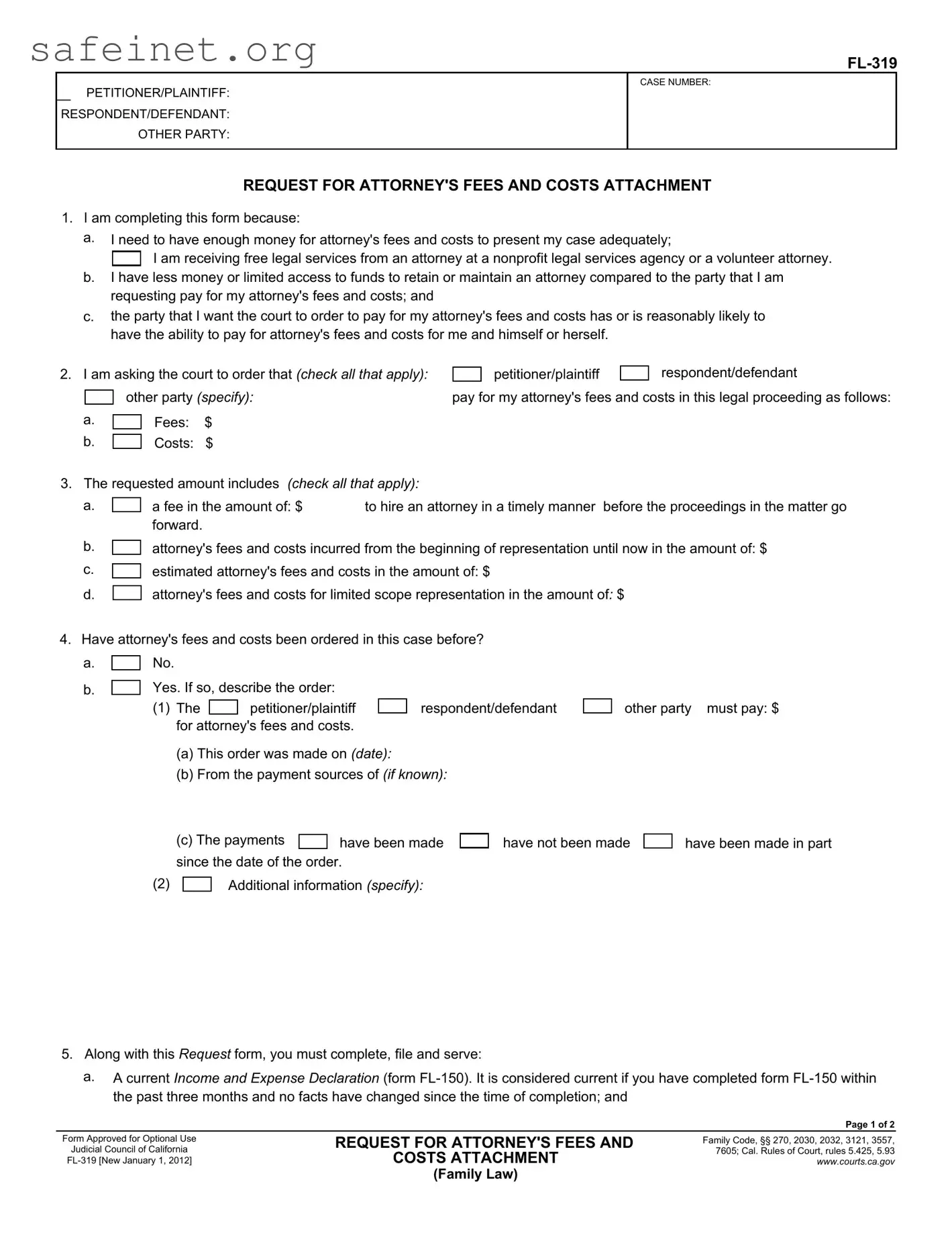What is the purpose of the FL-319 form?
The FL-319 form is used in family law cases to request attorney's fees and costs. If you find yourself in a situation where you cannot afford legal representation or believe the other party should cover these costs, this form allows you to present your request to the court. It outlines your financial circumstances and the reasons why the other party should pay for your attorney's fees and costs.
Who can file the FL-319 form?
Any party involved in a family law case, whether you're the petitioner/plaintiff or the respondent/defendant, can file the FL-319 form. The request is generally made by someone who demonstrates a financial need for assistance in covering legal fees and costs. This includes individuals receiving free legal services or those who have limited finances compared to the other party.
What information do I need to provide on the FL-319 form?
The form requests various details about your financial situation and the amount of money you seek for attorney's fees and costs. You'll need to include specifics like the hourly rate of your attorney, the nature of the legal matter, any fees incurred up to now, and estimates for future costs. Additionally, you may need a declaration explaining why the fees are necessary and reasonable.
Is there any other form I need to submit along with the FL-319?
Yes, to validate your request, you must submit two additional forms. First, a current Income and Expense Declaration (form FL-150) is required, which should be completed within the past three months. Second, a personal declaration supporting your request, which can be either the Supporting Declaration for Attorney's Fees and Costs Attachment (form FL-158) or a similar document that covers the relevant factors.
What happens if the other party denies the request for attorney’s fees and costs?
If the responding party disputes your request, they have the right to file a Responsive Declaration (form FL-320). They should also submit their own Income and Expense Declaration (form FL-150), and a personal declaration explaining why they believe your request should be denied. The court will review both sides before making a decision.
How does the court decide whether to grant the request for fees and costs?
The court considers several factors when deciding on your request. This includes the attorney's hourly rate, the complexity of the case, and whether the fees requested are justifiable and necessary. The court evaluates the information presented by both parties, including the details submitted in declarations.
What is the process for filing the FL-319 form with the court?
To file the FL-319 form, you must complete it fully and attach any required documents, like the Income and Expense Declaration and supporting declarations. Afterward, file it with the appropriate family law court. Be sure to serve a copy of the completed form and attachments to the other party as well. Follow court guidelines on filing fees, if applicable.





 No.
No.
